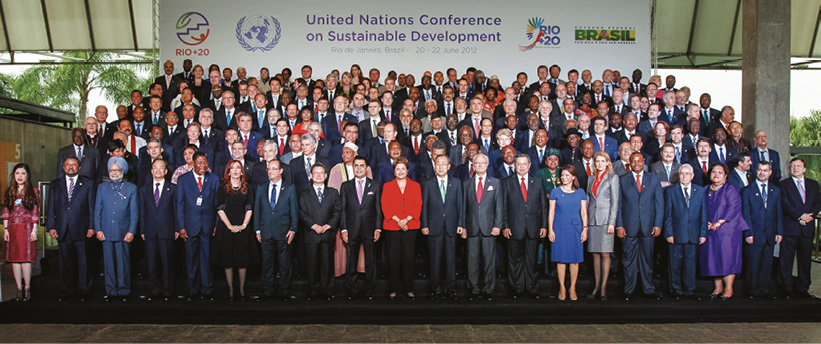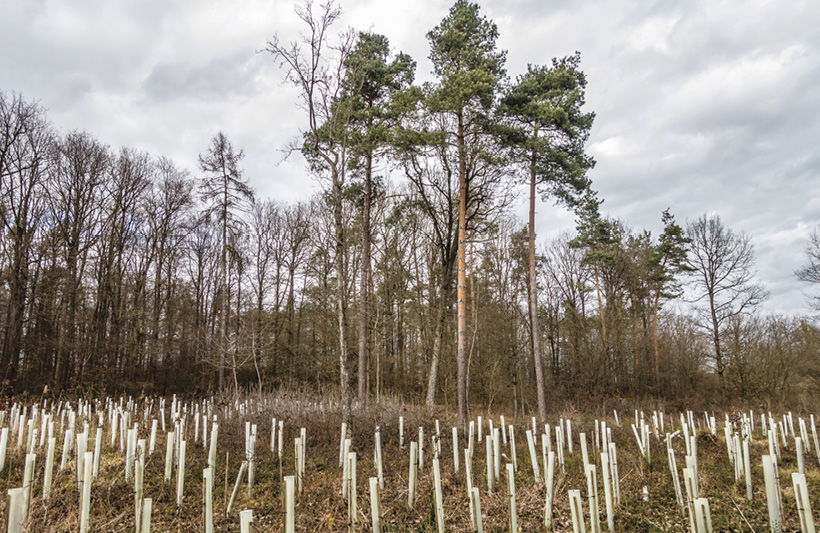FST JOURNAL
Biodiversity
DOI: https://www.doi.org/10.53289/XPTD9760
Rethinking the way society operates
Stephanie Wray

Dr Stephanie Wray is an ecologist and the Managing Director of RSK Biocensus, an environmental consultancy specialising in biodiversity and natural capital issues. She is a former President of the Chartered Institute of Ecology and Environmental Management, and is the Chair of the Institute’s Strategic Policy Panel. Her work focusses on environmental law and policy, sustainability and biodiversity; she advises both Governmental and private clients.
The UN Convention on Biological Diversity seeks to protect biodiversity globally. The agreement is not just about conserving biodiversity, though, it also looks at the sustainable use of natural resources. That means the goods and services that arise from biodiversity and how these are used so that they will be available for future generations. The Convention is also concerned with the equitable sharing of the benefits of biodiversity and natural capital.
The Convention dates back to the Earth Summit in Rio de Janeiro in 1992 some 30 years ago. Since then, there have been regular meetings of the parties. A series of targets have been set which have yet to be achieved: none of the most recent has been completed in its entirety.
The Conference of the Parties which starts this autumn in China is the time and place where delegates need to take account of all the guidance that has been given. The data shows that biodiversity is declining; there have been many studies demonstrating that. In this decade we need a complete shift in a range of global systems. The next 10 years must be the UN decade of an ecosystem restoration. We are already one year into the decade: there are just nine left to deliver this.
 The UN Convention on Biological Diversity dates back to the Earth Summit in Rio de Janeiro in 1992
The UN Convention on Biological Diversity dates back to the Earth Summit in Rio de Janeiro in 1992UK issues
In terms of national biodiversity, there are significant issues in the UK. It is among the countries that have seen the greatest decline. There is very little natural habitat within the UK. My particular specialisation is mammals: in the UK, 25% of them are at risk of extinction. If common, rapidly-breeding species like rodents are being driven to the brink of extinction, there is a problem.
A country’s biodiversity is related to the legislation and policies in place. In policy terms, the UK’s approach to dealing with this crisis is ahead of many other countries. There is legislation that derives from EU policy. There are innovative ideas in the Environment Bill. And there are examples of great practice in ecosystem restoration, habitat restoration and rewilding. These must all be brought together to form a body of policy which provides the motivation and direction of future action.
While much of the effort will have to come from business as the driver of economic activity, a wide spectrum of activity is required – international treaty and Government policy level, right through to individual action.In terms of business, it is important to stop thinking that sustainability is all about carbon and net zero: there are wider measures of sustainability. Everyone is familiar with the three-legged stool image of sustainability: of environment, social and economic aspects. The stool needs to be balanced in order to achieve sustainability so all three have to be addressed simultaneously.
To start with, how are we using natural resources? Businesses need to think in whole-of-life terms and consider the whole of the value chain, rather than just as far as the factory gate. Where are the raw materials coming from? Do they have significant natural resource implications? Does the production process take a lot of water? Responsibility is much broader than the immediate activities that a business may have direct control over. One of the most common nature-based solutions for climate change is planting trees. However, planting trees in the wrong places actually has a negative effect.
One of the most common nature-based solutions for climate change is planting trees. However, planting trees in the wrong places actually has a negative effect.
Business matters
Businesses need to start thinking in a different way in order to tackle these crises, to make themselves fit for the future and avoid some of the business risks that arise from these challenges. To be able to do that, they need a good structure of legislation, policy and regulation within which to operate.
Businesses innovate and find clever new ways to do things. But they work within the existing economic system. Without structural change, without a rethinking of institutions, it will be really hard for business to make that leap. Of course, there will be some innovators who find a way to make a commercial advantage of being more sustainable. Many people, though, will not follow that lead until a supportive structure is in place.
There is much discussion about the linkages these will be essential if net zero strategies are to be extended to deliver genuine sustainability.
For example, one of the most common nature-based solutions for climate change is planting trees. However, planting trees in the wrong places actually has a negative effect, both for biodiversity and potentially for climate. At one site I have been studying, the best solution for both biodiversity and for climate is to remove hundreds of hectares of trees in order to restore the natural bog underneath, as this will sequester far more carbon while being more beneficial for the biodiversity that should be in the area (and that in turn will bring additional benefits for water quality in the streams and so on).
Just focussing on one element can result in choices which may not have the best outcomes – indeed, they can sometimes have the reverse effect. It is important to do everything through the lens of an holistic approach that addresses the question: how does this affect the natural environment? Does it have a net positive impact on life, in its broadest sense, both human and also in the natural environment?
This implies nothing less than completely rethinking society, how we do business, and how we go about our day-to-day lives. It is just not possible to carry on living as though natural resources are unlimited. That may entail sacrifices like missing out on the next version of the smartphone that comes out every year. Yet maybe that is not what we should be wanting. Maybe we need to think about wanting less and still enjoying a better quality of life.
